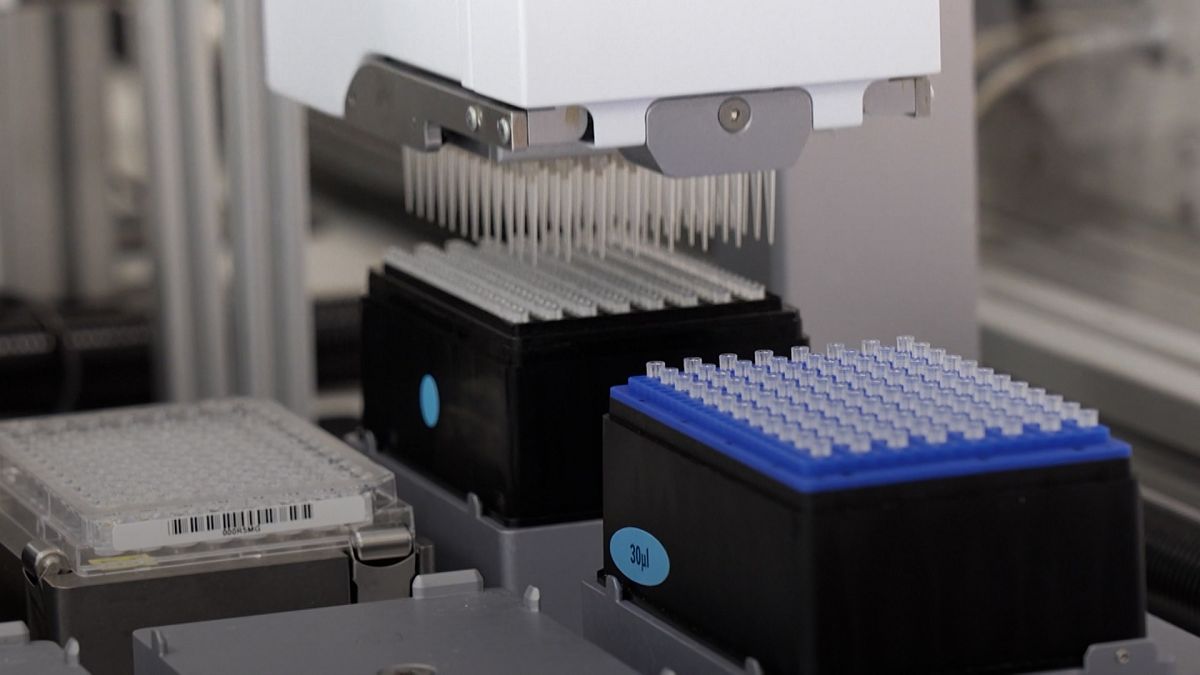Eve can take on everyday experiments, freeing up human scientists to take on more creative tasks.
A university in Sweden is using a so-called “robot scientist” to speed up its search for a cure for COVID-19.
The robot scientist, named Eve, is an AI-driven laboratory system that can automate research tasks like testing chemicals, planning and carrying out experiments.
“Eve will go through the entire list of chemicals she has, and try to find the same structure. So she chooses what will be the next step, depending on the previous one,” said scientist Ivgeniia Tiukova.
Medical researchers at Chalmers University of Technology in Gothenburg say Eve is able to take on work that human scientists would otherwise have to carry out, freeing them up to focus on more challenging tasks.
“We test a few thousand, it will take a while, but this robot is fast,” said Chalmers professor of chemistry Per Sunnerhagen.
Moving to Sweden
Eve started life at the University of Manchester in northern England, where she was involved in finding treatments for malaria.
Moving Eve to Gothenburg involved disassembling the robot scientist’s robotic arms, liquid handling, drug maintenance and yeast culture equipment.
Eve’s developer, British scientist Ross King, said in a statement that he hoped she would enable Chalmers researchers to spend more time being creative.
“This will free human scientists to make the high-level creative leaps at which they excel, and thus contribute to solving societal challenges,” he said.



